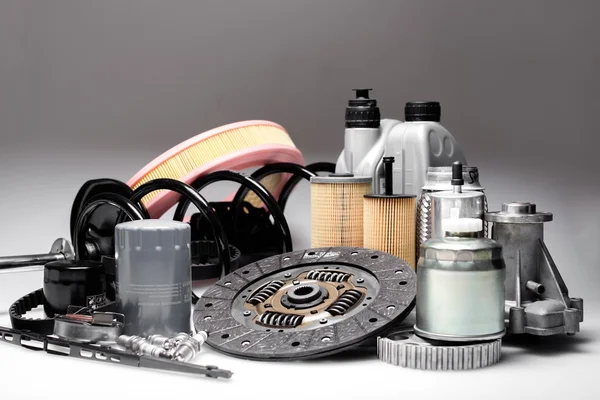For car enthusiasts who love tackling maintenance and repairs on their own, having the right diagnostic tools can make all the difference. These tools not only save time and money but also help you better understand your vehicle’s health. With advancements in automotive technology, diagnostic tools have become more accessible, offering both basic and advanced options for DIYers. In this guide, we’ll explore the five best diagnostic tools for DIY car enthusiasts and provide tips for choosing the right one for your needs.
-
The Importance of Diagnostic Tools for DIY Car Enthusiasts
Understanding Vehicle Diagnostics
Diagnostic tools interface with your car’s onboard diagnostic (OBD) system, typically through an OBD-II port, to retrieve information about your vehicle’s performance and any issues. These tools can identify problems ranging from minor sensor errors to critical system failures.
Why Diagnostic Tools Are Essential
- Cost Savings: Identify and resolve minor issues at home, avoiding expensive diagnostic fees.
- Preventative Maintenance: Catch small problems before they become costly repairs.
- Empowerment: Boost your confidence and capability to maintain and repair your vehicle.
Factors to Consider When Choosing a Diagnostic Tool
- Compatibility: Ensure the tool supports your vehicle’s make, model, and year.
- Features: Look for error code reading, live data streaming, and advanced reset options.
- Ease of Use: Tools with intuitive interfaces or app compatibility are more user-friendly.
- Budget: Find a tool that balances features and affordability.
-
Overview of Diagnostic Tool Types
OBD-II Scanners
These are the most common diagnostic tools, designed to plug directly into the car’s OBD-II port. They range from basic code readers to advanced devices with live data capabilities.
Bluetooth Diagnostic Tools
These tools pair with a smartphone or tablet, offering convenience and access to advanced features through mobile apps. They’re ideal for tech-savvy users.
Professional-Grade Scanners
These devices are more advanced, providing detailed diagnostics and system resets. While pricier, they are worth considering for experienced DIYers.
-
The 5 Best Diagnostic Tools for DIY Car Enthusiasts
Tool #1: Basic OBD-II Scanner
Example: Innova 3100RS
- Features: Reads error codes, resets check engine lights, and provides basic troubleshooting tips.
- Ideal For: Beginners who want a simple, cost-effective tool.
- Pros: Affordable, easy to use, and compatible with most vehicles.
- Cons: Limited advanced functionality.
Tool #2: Bluetooth OBD-II Adapter
Example: BlueDriver OBD2 Scanner
- Features: Connects to a smartphone app, offers enhanced diagnostics, and provides detailed repair reports.
- Ideal For: Tech-savvy DIYers who prefer app-based tools.
- Pros: Wireless convenience, frequent software updates, and detailed data.
- Cons: Requires a smartphone and is app-dependent.
Tool #3: Professional Diagnostic Scanner
Example: Autel MaxiCOM MK808
- Features: Covers advanced diagnostics, live data graphs, and system resets for ABS, airbags, and more.
- Ideal For: Experienced DIYers or semi-professionals.
- Pros: Comprehensive diagnostics, user-friendly interface.
- Cons: Expensive, with a learning curve for beginners.
Tool #4: All-in-One Diagnostic Tablet
Example: Launch X431 V Pro
- Features: Large touchscreen, extensive vehicle coverage, and bi-directional control.
- Ideal For: Enthusiasts seeking an advanced yet intuitive tool.
- Pros: Easy navigation, professional-grade features.
- Cons: High price point but justified for its versatility.
Tool #5: Specialty Diagnostic Tool
Example: Bosch ADS 625
- Features: Focuses on specific systems like ABS, airbags, and transmission diagnostics.
- Ideal For: Enthusiasts dealing with niche or specialized issues.
- Pros: In-depth diagnostics for targeted systems.
- Cons: Not a comprehensive tool for all systems.

-
Features to Look For in a Diagnostic Tool
Compatibility
Ensure the tool works with your car’s make, model, and year. Some tools provide updates to support newer vehicles.
User Interface
Look for clear screens, easy-to-navigate menus, and language options for accessibility.
Diagnostic Capabilities
Tools with live data streaming, sensor tests, and system resets offer the most value for enthusiasts.
Connectivity
Decide between wired and wireless options. Bluetooth tools offer greater convenience and app integration.
Durability and Portability
Choose tools built for frequent use. Compact designs are easier to store and transport.
-
Tips for Using Diagnostic Tools Effectively
Familiarize Yourself with the Tool
Read the user manual and explore tutorials to understand your tool’s full capabilities.
Regular Maintenance Diagnostics
Run regular scans to monitor your vehicle’s health and address minor issues early.
Troubleshooting with Online Resources
Use error codes to search for solutions online. Forums and manufacturer websites often have valuable insights.
Know Your Limits
While diagnostic tools are powerful, some problems require professional expertise. Recognize when it’s time to consult a mechanic.
-
Benefits of Owning a Diagnostic Tool
Cost Savings
Avoid shop fees for diagnostics and tackle simple repairs yourself.
Convenience
Diagnose issues anytime, anywhere, and avoid long wait times at repair shops.
Enhanced Knowledge
Learn more about your car’s systems and build your skills as a DIY mechanic.
Conclusion
Investing in the right diagnostic tool can revolutionize how you maintain and repair your car. Whether you’re a beginner or an experienced DIYer, there’s a tool to match your needs and budget. Start small with a basic scanner or go all-in with a professional-grade tool. Whichever you choose, you’ll gain confidence, save money, and keep your vehicle running smoothly.

